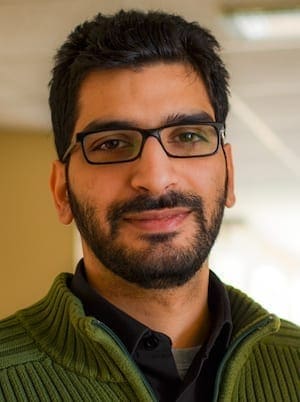The North African region of Sudan – governed by British and Egyptian authorities until 1956 – has long been a hotbed for Muslim-Christian tensions.
Embroiled in a conflict that spans two civil wars, it comprises a predominately Muslim Arab North Sudan and a predominantly Christian South Sudan.
On July 9, 2011, South Sudan was formally declared as an independent state, following a referendum aimed at determining whether South Sudan should declare independence from Sudan.
On July 14, 2011, the General Assembly admitted the Republic of South Sudan as the 193rd member of the United Nations.
The split ended the decades-long civil war between the predominantly Muslim North and the predominantly Christian South. The United States government has played a pivotal role in bringing this moment to fruition.
This may seem a positive development for Christians from a geopolitical perspective. I would argue that it was a negative development for the church and for its task of sharing the gospel in Sudan.
In 2013, Sudan stepped up its arrests and deportations of Christians, with interrogations, arbitrary detentions for months and torture. Authorities in the north deported Christians to the newly formed South Sudan.
The Khartoum government sent back many church pastors and leaders ministering in the North to the South and confiscated their property.
South Sudanese Christians in Sudan have faced increased hostilities due to their ethnic origins – though thousands have little or no ties to South Sudan – as well as their faith.
In the words of an Arab Baptist Theological Seminary (ABTS) graduate who is going back to North Sudan to engage in ministry and to witness this month, “Now with the split, the government is treating all Christians as if they were South Sudanese. They are acting on the basis that Sudan is an Islamic state.”
“Before the split of Sudan,” he said, “the Islamic government of Khartoum had to please the Christians in order to gain politically from the various actors in the South, but things have changed now. My wife’s sister and her husband had to flee to Egypt recently.”
South Sudan’s secession has served as a pretext for the rulers in Khartoum, the capital of Sudan, to bulldoze church buildings once owned by South Sudanese and to deport Christians based on their ethnicity.
However, the ABTS graduate, steadfast, added, “My family and my wife are from Northern Sudan. We grew up there. Our schools were there. Our friends and family live there. And we want to go back to pursue ministry among the kind people of Sudan who need to hear the gospel. We have a vision to serve the Lord in the church and outside the church walls.”
Another Sudanese ABTS graduate said that he was planning to return to Khartoum, where he had been living for eight years.
However, he told me, “I am most likely to be back to minister to refugees in the refugee camps in South Sudan, housing displaced communities impacted by the ongoing conflict in the Nuba Mountains region.”
These camps house communities that are either Christians, Muslims or animists.
Traditionally, most of the ABTS Sudanese students have been from the South. When the split took place, all Southerners had to go to the South, meaning that ministries in the North were left with very few ministers.
However, as the split happened, we found out that most of our Sudanese students studying at ABTS at the time were from the North. It was as if God had been preparing a new generation of leaders for the North even before the split took place.
What Rupen Das, director of the master of religion in Middle Eastern and North African studies at ABTS, wrote about Syria applies for Sudan. “The global Church has lost its moral voice in the Syrian (Sudanese) conflict and has chosen to remain silent.”
Now that the split is complete, the global church has a greater more compelling role to play in Sudan.
Primarily, the global church needs to acknowledge that the model of multi-religious states and cultural diversity, such as that of Syria and of Lebanon, has been an excellent model for communicating the message of the gospel. And the splitting or “dissection” of countries and people, whether in Sudan, Syria or Israel/Palestine, is detrimental for the spread of the gospel.
Second, neither South Sudanese nor missionary foreigners are able to reach out to the northern Sudanese, at least not as effectively as northerners themselves. The situation is similar to many Arab countries, such as Libya whose government recently expelled missionaries.
From the ABTS perspective, it has become imperative for the global church to support the church in Sudan through encouraging and sponsoring native Sudanese from Khartoum and from other northern Sudan areas to be equipped for pastoral and evangelical ministries at seminaries, such as at ABTS or in Egypt.
Also from ABTS’ perspective, the global church should creatively support the missional role of the local churches in Sudan – financially, as well as through prayer, building management and organizations capacity and providing resources – so that they remain steadfast in sharing the gospel in the face of trials and persecution.
Christian believers in northern Sudan have a heart for sharing the gospel but need support and encouragement in the face of persecution.
For the Sudanese are now saying, along with the Apostle Paul, “that the sufferings of this present time are not worth comparing with the glory that is to be revealed to us.” (Romans 8:18)
Wissam al-Saliby is the development and partner relations manager at Arab Baptist Theological Seminary. He holds a master of arts in international law and blogs at Ethiopian Suicides and Lebanonesia. A version of this column first appeared on the IMES blog and is used with permission.
Wissam al-Saliby is a UN Geneva Advocacy Officer with the World Evangelical Alliance.

